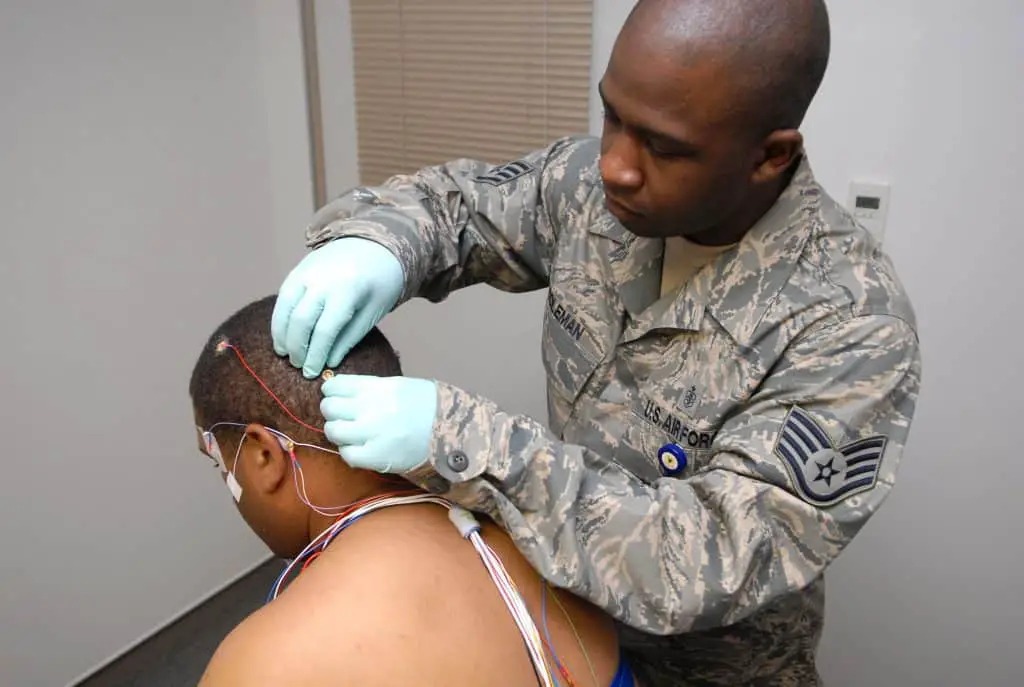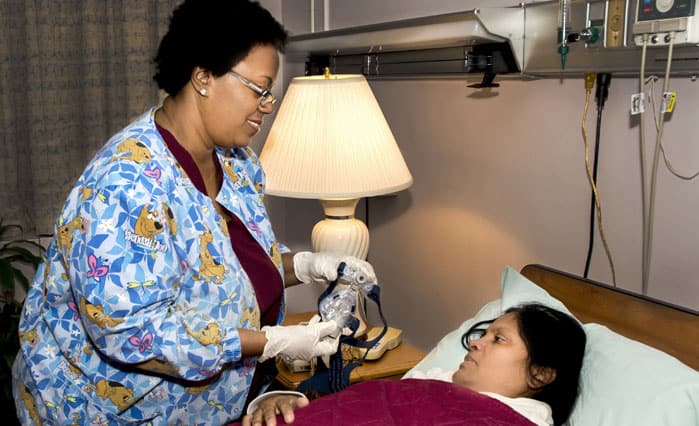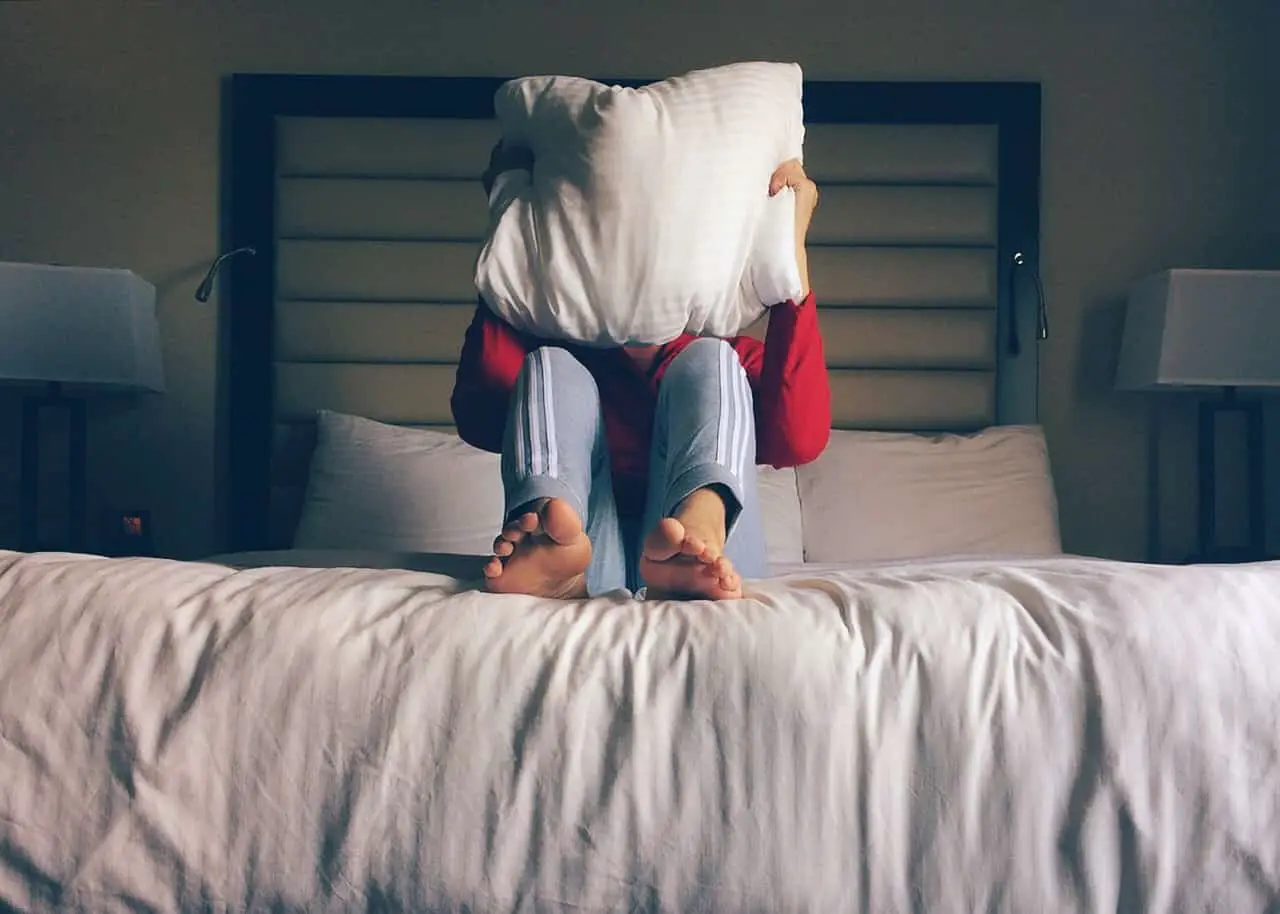If you are having trouble sleeping you probably need to see a sleep specialist. They diagnose and treat sleep disorders. But if you think the problem is your mattress, first try getting a new one. Read our best online mattress reviews.
Is there really anything like a sleep doctor?
Yes there is. They are usually full medical doctors with specializations in certain fields like psychology and certified to provide diagnosis and treatment for various sleep disorders.
You can check whether they have a certification from the American Board of Sleep Medicine.
If they do you’ll probably see this title among their other credentials – Diplomate of the American Board of Sleep Medicine (D, ABSM).
What Does a Sleep Specialist Do?

Sleep specialists mostly deal with sleep disorders. They diagnose and recommend treatment for various sleep disorders including sleep apnea, insomnia, narcolepsy and restless leg syndrome.
They can also diagnose and treat other sleep-related problems like snoring, bedwetting, nightmares, sleepwalking and unusual sleep patterns.
When Should I See a Sleep Specialist?
If you have had trouble sleeping for quite some time, it’s a good idea to see a sleep specialist.
Sleep disorders can come in different forms and symptoms. Maybe you are grinding your teeth in sleep, your sleeping patterns are constantly changing, you can’t stop oversleeping or maybe you just find it really difficult to fall asleep.
Basically anything that reduces the quality of your sleep is worth talking to a sleep specialist about.
If it’s nothing serious however, you can try a few basic techniques to improve your sleep quality.
Figure out whether there is something else affecting your sleep such as too much stress, noises or medication.
You can try meditation, lowering room temperature and changing your pre-sleep routine (eliminate gadgets, relax and avoid stimulating foods and drinks).
A lot of times the problem could also be your mattress. A poor quality mattress with inadequate support will often cause you to shift a lot at night and get less sleep. If you’ve had your mattress for 8-10 years, it’s probably time to get a new one. See our best online mattress reviews for recommendations.
What To Expect When You Go To a Sleep Specialist

Like a visit to any other doctor your visit to a sleep specialist will start with an initial diagnosis.
The specialist will take your medical history, understand your symptoms, ask about your current lifestyle, ask whether you are taking any medications and any other relevant information.
Based on this information the doctor may be able to make a full diagnosis and recommend a form of treatment. In some cases however they may recommend a sleep study.
This is usually performed in a specialized sleep clinic or sleep center. The sleep specialist may have one in their premises or you may be referred to a local one.
It’s a good idea to check whether a sleep clinic is accredited by the American Academy of Sleep Medicine (AASM). This will ensure the best results.
The purpose of a sleep study is to monitor your sleep-wake cycles in order to make a diagnosis. There are different types of sleep studies including a Polysomnogram which is the most common, a sleep latency test and a Maintenance of Wakefulness Test.
Based on your symptoms and an initial diagnosis, your doctor will recommend the best type of sleep study.
In some cases the sleep specialist may also recommend a home sleep test rather than have you show up at a sleep center. You’ll be given one or more devices to measure airflow, heart rate and other metrics during sleep.
What Treatment Will a Sleep Specialist Recommend?
It will depend on your particular problem.
In cases of mild sleep disorders the specialist may just recommend a lifestyle change. In more serious cases such as nightmares you may be required to undergo behavioral therapy.
The doctor may also recommend medication for certain types of sleep disorders.
After diagnosis the specialist will keep up with your progress through regular clinic visits to make sure the treatment is working as intended. They can modify the treatment at any time depending on your progress.
Affiliate Disclosure
Affiliate Disclosure: I may earn a small commission (at no cost to you) if you purchase a mattress after clicking a referral link or using a coupon code on this site. That said, all content and opinions on this site are my own and are NOT affected by these payments.
This site participates in the Amazon Services LLC Associates Program, an affiliate advertising program designed to provide a means for sites to earn advertising fees by advertising and linking to Amazon.com.
*Amazon and the Amazon logo are trademarks of Amazon.com, Inc, or its affiliates.

